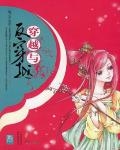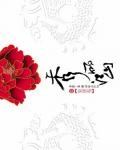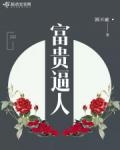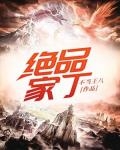Volume 1: A sound on Wall Street, Xinxiang City is busy copying books Chapter 15 Mises
Subtitle of this chapter: I will try not to use Baidu, and you should also try not to read it in vain!
“Master Ball, what on earth is going on?! Why, why, why…”
“You can only draw randomly???!!!”
After entering the second-level discipline, Yuan Yan was deeply hurt by the Master Ball system. He found that theoretical economics works could only be randomly selected, with 10,000 B coins at a time. There was no accurate exchange.
At the same time, all applied economics works can only be randomly selected once, but each time costs 100,000 B coins! Similarly, there is no accurate exchange.
"Host, have you heard the old saying? If you like, quit."
Since the Master Ball even said this, Yuan Yanshu had no choice but to ask weakly: "Then may I ask why Applied Economics costs 100,000 times?"
"Why is applied economics so expensive... May I ask if the host still remembers the grades of advanced mathematics, statistics, operations research, and analytic geometry?"
"This...but I passed the make-up exam!"
"Tsk, in order to make up for the host's low IQ and weak math skills, the price of applied economics that makes extensive use of mathematical tools has increased tenfold!"
So, in the final analysis, the 10003B coins obtained from Anna can only be used to draw theoretical economics once.
Yuan Yanshu had no choice but to start the random draw. The Master Ball interface turned into a large turntable, with the titles of countless economics books densely written on the circumference. Before Yuan Yanshu could see clearly, the thin pointer extending from the central button began to rotate.
Because he couldn't understand the painstaking efforts of the system maker, Yuan Yanshu didn't have any high hopes for the system. As long as he could get a doctorate degree, that would be enough.
So when he saw the book he had drawn, he couldn't help but feel the deep malice of the Master Ball system.
In fact, the author of this economics book is truly a master, and a master with a very prominent background.
To be a serious public intellectual in the online world a hundred years from now, there are three must-read introductory books: George Orwell's "1984", Karl Popper's "The Open Society and Its Enemies", and Hayek's "The Road to Serfdom". If you can thoroughly understand these three secret books and quote the famous sayings in them at will, those ignorant 50-cent and little pinks will not be able to stand up to you. However, if you encounter Yuan Hongjian, a learned but evil-minded dog and lackey, you can't just rely on the common martial arts such as "Taizu Changquan", "Wuhu Duanmen Dao" and "Women's Self-Defense". Even if you can Baidu, you have to know that keywords are not.
At this time, as the teacher of the author of The Road to Serfdom, the name of this master can be used as a keyword. Since he is a master, his title is also quite long.
An outstanding liberal thinker, the third-generation head of the Austrian School, a member of the Mount Pelerin Society, a radical market fundamentalist, a major representative of the libertarian movement, a scholar who contributed to the revival of classical liberalism, and the dean of the Austrian School at Hogwarts ... well, the dean of the Austrian School.
Don’t be impatient. These are just his titles in the economics field, which can be found by searching on Baidu. Below are his life experiences that cannot be found on Baidu.
Son of the chief of the Jews of Galicia and Lodomeria, knight of the House of Habsburg, scholar of Vienna, favorite of Mercury, apostle of Bacchus, centurion of the 30th Imperial Field Artillery Regiment, defender of the Germanic Plains, crusher of the Slavs, wounded buttocks, Secretary of State in Bosnia, disseminator of knowledge in Geneva, because Keynes and his disciples dominated the economics world after World War II, so he spent the rest of his life in the New World and had to be a visiting scholar at New York University, a war exile who couldn't even get a formal teaching position.
He is Ludwig Heinrich Edler von Mises, and the book that was drawn is naturally his most famous masterpiece, "Socialism".
Yuan Yan suddenly felt like a toad struck by lightning. She completely lost all her strength. Her knees softened and she fell to the ground in a frustrated forward bend.
ORZ, now there are four big words floating in his mind: reactionary, movement, academic, and valve!
He finally understood a fact: either he would not live to see 49 years, or this book would not be written to see 49 years.
Why did Yuan Yanshu feel so sad? First of all, we must explain what neo-classical liberalism is. To make a long story short:
The earliest bourgeois liberal scholars appeared in the Enlightenment era of the 17th century. In a broad sense, Enlightenment masters such as Voltaire, Montesquieu, Rousseau and Thomas Jefferson can also be considered liberals. From a narrow economic perspective, the representative figure is Adam Smith, who wrote "The Wealth of Nations". This political and economic philosophy that supports the individual before the state and emphasizes individual rights and freedoms is called Classic Liberalism.
With the classics, there will naturally be new trends. With the development of capitalism, economic crises inevitably occurred, one after another, each one more tragic than the last, and class contradictions became more acute, with the potential to spread like wildfire. Therefore, various left-wing theories emerged. In the 1870s, a group of economists appeared in Britain. They demanded that the national government step in to solve the problems of unemployment and poverty in order to ease class contradictions. Therefore, they became New Liberalism ( neoliberalism can also be called revised liberalism or social liberalism).
The First World War in the early 20th century left old Europe devastated, and the participating powers almost killed a generation of young people on the battlefield. Naturally, the call for peace and anti-war was very popular , and political thinkers of all schools began to think about how to avoid this kind of industrialized war that can lead to mutual destruction between enemies and friends. Some liberal scholars radically advocated that if there were no nation-states, there would naturally be no such wars between nation-states (sounds familiar, right?), and Neo Liberalism (the most radical liberalism) appeared.
Finally, here is a minimalist version:
Classical liberalism holds that capitalism is good, so the best government is the one that governs the least.
Neoliberalism believes that capitalism is good, but it cannot rule everything. Therefore, the best government is the one that does just the right amount of things, not too much or too little.
Neoclassical liberalism does not even want the national government, leaving everything to capitalism, which is not just good for the small, but great. Its successors took a small step forward, and the famous "capitalist globalization" came into being."!






